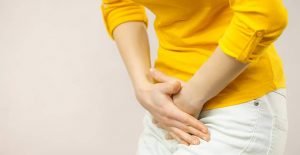Pubic hair, or bulbol, refers to the hair that grows around the genital area of both men and women, typically appearing during puberty. While many people ignore its presence, others may find it bothersome, especially when wearing certain types of clothing. This leads some to opt for removing pubic hair, whether through shaving, waxing, hair removal creams, or even cosmetic procedures for permanent removal. But is removing pubic hair safe?
Is Pubic Hair Removal Safe?
According to medical experts, removing pubic hair is a matter of personal preference and generally does not have any significant impact on overall health. Whether you choose to remove it or let it grow is entirely up to you. When done properly and hygienically, pubic hair removal is considered safe. However, it’s essential to note that some individuals may experience side effects depending on the method used.
Common Side Effects of Shaving Pubic Hair

- Skin irritation. Shaving improperly or with dull blades can cause discomfort or pain.
- Redness. The shaved area may appear red or inflamed due to friction or sensitivity.
- Itching. This can occur as the hair grows back or due to minor skin irritation.
- Infections. Hair follicles can become infected, leading to folliculitis, an inflammation of the hair roots.
What to Do if Side Effects Occur
If you experience discomfort or other side effects after shaving pubic hair, consider the following steps:
- Pause shaving. Avoid shaving further until the irritation subsides.
- Apply topical treatments. Over-the-counter creams, such as hydrocortisone, can help reduce redness and itching.
- Soak in warm water. A warm bath can soothe irritated or inflamed skin.
- Consult a doctor. If there are signs of infection, such as pus or increased swelling, seek medical advice from a dermatologist or healthcare provider.
Removing pubic hair is largely a personal choice and, when done correctly, is generally safe. However, it’s important to use proper techniques and hygiene to avoid irritation or infections. Should side effects arise, simple remedies like warm baths and over-the-counter creams can help, but medical consultation is recommended for severe or persistent symptoms. Always prioritize cleanliness and use appropriate tools to minimize risks during pubic hair removal.


